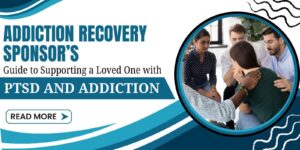Opioids are prescribed by doctors to treat acute cases of pain. However, the problem arises when a person gets hooked on them and starts consuming opioids more than the recommended dosage. An addiction manifests when a person has a powerful urge that he/ she cannot resist despite wish.
A person who is suffering from opioid addiction should get Opioid Addiction Treatment from a reputed opioid drug rehab near him.
Opioids are a class of drugs that influence the opioid receptors present in the brain. Opioids can be natural, semi-synthetic, or even fully synthetic. The main aim of opioids is pain relief. However, they are also used to generate feelings of sedation as well as euphoria.
Naturally occurring opioids are derived from the opium poppy plant. The semi-synthetic opioids are derived from natural opioids but their properties are modified to enhance their impact on the body. Fully synthetic opioids are chemically synthesized in a laboratory and do not occur naturally.
It is important to use opioids only under prescription by a healthcare professional.
The terms opioids and opiates are usually used interchangeably. However, they are not the same and there is a technical difference between both things.
Opiates refer particularly to substances that come directly from the opium poppy plant. This term includes under its ambit natural alkaloids found in opium, like morphine and codeine. These substances are present naturally in the opium poppy. They have been used for their pain-relieving properties since time immemorial.
Opioids is a broader term and encompasses a much wider range of substances. It includes natural, semi-synthetic, and fully synthetic compounds. They act on the opioid receptors in the brain and produce effects that are quite similar to what opiates produce.
Our navigators will help you take back control of your life.
When you call our helpline, an admissions navigator is there to listen to you, answer any questions you have, and provide the support that you need—all 100% confidentially.
There are several opioid rehab centers that offer treatment for opioid addiction. The treatment for opioid addiction is similar to treatment for a chronic illness. An addict needs to be monitored for a long time so that he/ can be deemed sober. It is important to discuss the treatment not only with the addict but also with family members so that the addict gets the support that is quintessential for him/ her coming out of the problem.
The treatment plan for opioid addiction is not the same for everyone. It depends upon the severity of the problem and even the genetic disposition of a person. Opioids withdrawal is real. A person might face symptoms such as abdominal pain, nausea, vomiting, and anxiety
The doctor prescribes medication to relieve these withdrawal symptoms and even minimize cravings. Some of the commonly used medicines to combat withdrawal symptoms are buprenorphine, naltrexone, etc.
Many factors lead to opioid addiction. Some of the key factors are mentioned below:
- Pain Management- Opioids have powerful pain-relieving properties, and one of the primary reasons for opioid use is to manage acute or chronic pain. However, prolonged or inappropriate use of opioids for pain management can lead to dependence and addiction.
- Prescription Drug Misuse- Opioid addiction can also develop when individuals misuse prescription opioids. This means taking higher doses than what is prescribed, or even using them for non-medical reasons, or using them for longer durations than necessary.
- Ease of Availability- Opioids are easily available. This also contributes to the chances of addiction as people can easily buy them in the black market.
- Genetic Disposition- Genetic factors can influence an individual’s susceptibility to opioid addiction. Some people may have a genetic predisposition that makes them more vulnerable to developing addiction. Additionally, the way opioids interact with the brain and body can lead to physiological changes that enhance the peril of addiction.
- Co-occurring mental health disorders- Opioid addiction often co-occurs with mental health disorders such as depression, anxiety, or post-traumatic stress disorder (PTSD). Individuals may misuse opioids as a way to self-medicate and alleviate symptoms of these underlying mental health issues.
So, these are some of the reasons for opioid addiction.

Opioids primarily have analgesic effects on the body. However, prolonged and excessive use of opioids can lead to addiction.
Some other effects caused due to ingestion of opioids are feelings of euphoria and relaxation. In some individuals opioids cause sedation. Opioids can also cause itchiness or pruritus, this is popularly referred to as opioid-induced itch. This effect is thought to be related to the release of histamine in the body. Opioids can even suppress the respiratory system, leading to slow and shallow breathing.
Prolonged opioid use can even affect hormone levels in the body. Opioids can disrupt the production and release of hormones such as testosterone, estrogen, and cortisol, potentially leading to sexual dysfunction, menstrual irregularities, or hormonal imbalances. Opioids come with a huge risk of addiction. Regular use of opioids, particularly in big doses and sans proper medical supervision, can lead to severe addiction.
Overcoming opioid misuse and achieving recovery is a challenging process that calls for commitment to becoming convalescent, constant support, and the right kind of treatment. Accept the need to change and be honest with yourself about the implications of opioid use. This is your first step towards overcoming misuse.
It is important to consult a healthcare professional or addiction specialist who can provide guidance and support in overcoming opioid misuse. He/ she can assess your situation, suggest the right treatment options, and develop a personalized plan for the addict. A medically supervised detoxification may be necessary. It helps the body to safely eliminate opioids while managing Opioid withdrawal symptoms. With the right support and treatment, an individual can overcome opioid misuse and lead a healthier and opioid-free life.
Check to see if your insurance is in-network at an American Addiction Centers location
We’ll instantly check the coverage offered by your insurance provider.
Opioid Detox
This is the process of eliminating opioids from the body while managing Opioid withdrawal symptoms. It is also referred to as opioid detoxification. It is the first step toward opioid addiction treatment.
Opioid Withdrawal Symptoms
Opioid withdrawal symptoms occur when a person dependent on opioids abruptly reduces or stops their use of the drug. The specific symptoms and their intensity can vary depending on factors such as the type of opioid used, the dosage, duration of use, and individual differences.
Some of the common opioid withdrawal symptoms seen in addicts are mentioned
- Anxiety
- Restlessness
- Agitation
- Runny nose
- Watery eyes
- Watery eyes
- Insomnia
- Increase in heart rate
- Nausea
- Rapid breathing
- Fatigue
- High Blood Pressure
- Increase in Body temperature.
The intensity and duration of Opioid withdrawal symptoms can vary among individuals. Factors such as the severity of addiction, individual tolerance, and overall health can influence the experience of withdrawal. The symptoms may peak within the first few days and gradually subside over a week or more.
Post-treatment Steps for Long-Lasting Recovery
To maintain long-lasting recovery from opioid addiction, it’s important to take steps beyond the treatment. The person should continue to take part in therapy or counseling sessions to address underlying issues, develop coping skills, and maintain emotional well-being.
Also, it is vital to surround yourself with a supportive network of family, friends, or support groups who understand your journey and provide encouragement and accountability.
Regularly participate in support groups such as Narcotics Anonymous (NA) or other recovery-oriented groups to connect with peers, share experiences, and receive ongoing support.
Identify and avoid situations, people, or places that may trigger cravings or jeopardize your recovery.
Rehab centers play a very important role in handling opiod dependence crisis. They provide comprehensive as well as specialized care according to the need and requirements of the patient. A patient gets a safe as well as supportive environment where with medical detoxification, psychological counseling, and behavioral therapies they are able to come out of their problem.
Approaching rehab is your first step towards getting convalescent. Do your research and look for rehab facilities that specialize in the kind of problem that you are dealing with. Ask about treatment costs, insurance treatment duration, the kind of program you might need, etc. Take an informed decision based on all information that has been collected by you.
The patient has to stay within the rehabilitation facility to undergo de-addiction treatment.
The patient does not have to stay within the rehabilitation facility. He/ she visits the facility depending on what is advised by the addiction specialist.
In a partial hospitalization program, the patient visits the rehab facility during the day, gets his/her treatment done, and returns home at the end of the day.
While self-assessment tools cannot provide a definitive diagnosis, they can help identify potential signs and symptoms that are commonly associated with opioid addiction. If you are taking prescription drugs more than the prescribed amount or you have a strong urge to consume them, then it is possible that you are suffering from addiction. If you suspect opioid addiction, it is crucial to seek professional help.
Opioid addiction is a chronic condition that not only affects the individual who is struggling with it, but also his/ her family members. By addressing the physical, psychological, and social aspects of opioid addiction, rehab centers play a vital role in breaking the cycle of addiction, promoting recovery, and improving the overall quality of life for individuals and their family members. They serve as a bridge between the acute phase of addiction and reintegration into society, offering aftercare programs and support groups to help individuals maintain sobriety and prevent relapse.









